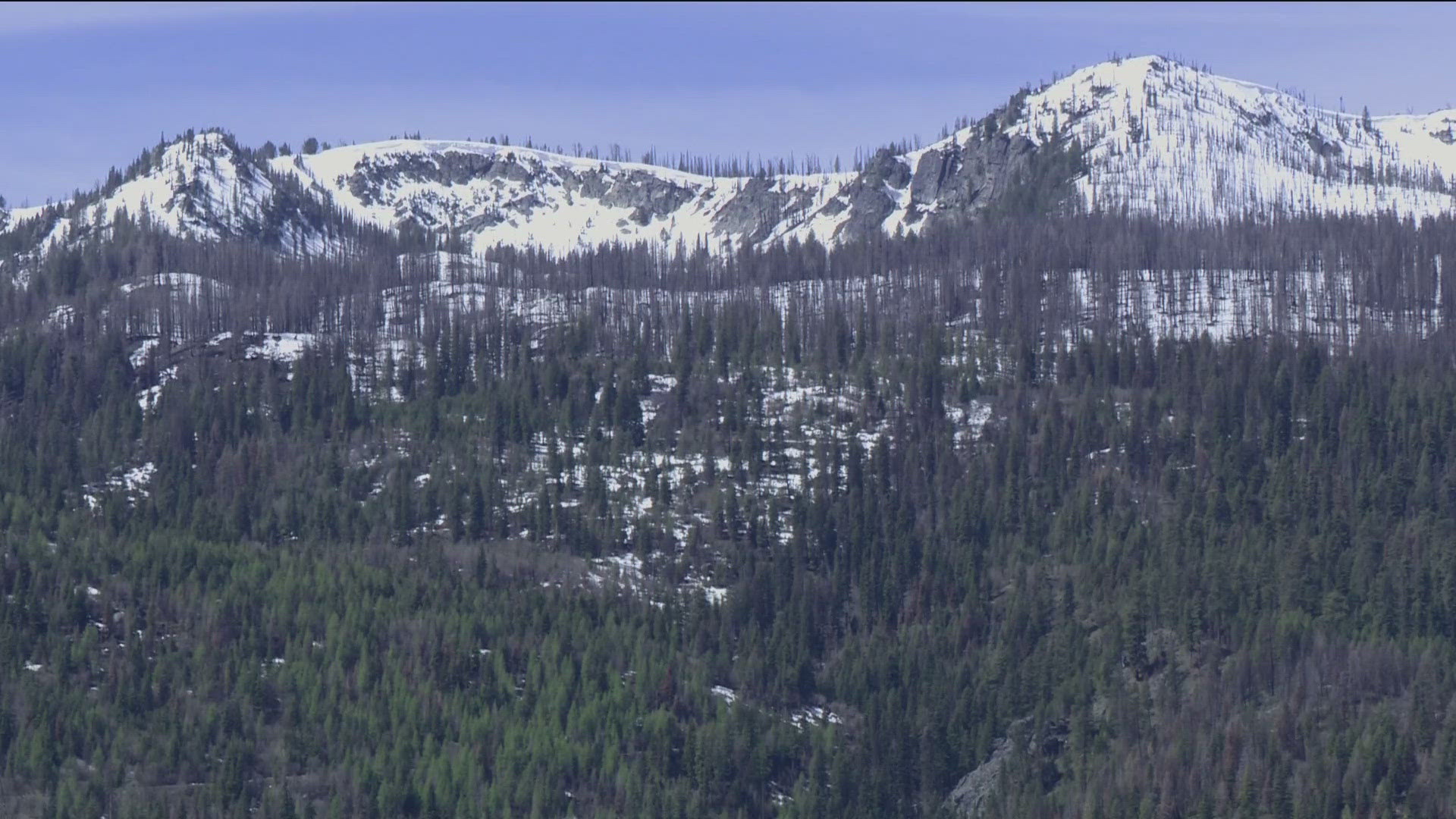BOISE, Idaho — In September of 2022, the Four Corners Fire broke out in Cascade, Idaho. The fire inched closer to cabins and homes, and officials were forced to evacuate about 600 people. The fire was stopped in mid-August and burned at about 14,000 acres.
While the fire left behind a charred landscape, Payette National Forest District Ranger Dana Harris told Environment Northwest that fires are natural.
"If you look across at the mountain, it's not burned black with just sticks all the way across," explained Harris. "As far as the severity of this fire, about 98% of it was moderate and low severity. And about 2% of it was high."
She said that the area is recovering and it has a positive outlook for the future.
Prescribed burns were slated for the area, before lightning ignited the fire.
"There hadn't been one for a while. We have been excluding wildfires from the forest. We've been doing that for 100 years, just putting fires out as fast as we could. Fire is a natural process. And so this ecosystem is one that before European settlement, there was fire," explained Harris.
She added, "The scary part of wildlife is when it threatens infrastructure and human life."
Harrys said because the fire was mostly low to moderate severity, it had some benefits for the forest, "It opened up spots for regeneration of different species of plants and trees. And it opened up the understory for wildlife as well.
We know now that the Four Corners Fire fire had benefits, but officials did not know that right away. A specialized team was deployed to determine the severity of the fire and whether there are still root systems holding soil on the slopes.
"We want to make sure that it'll be safe over the winter and when it rains," Harris stated.
University of Idaho Professor Heather Heward was a field observer on the Four Corners Fire. She specializes in fire ecology and management.
"My job was to go around into the areas that were burning actively and observe what was burning so that I could communicate back to what's called the fire behavior analyst and say to them, 'Hey, this fuel type is burning right now, and this one's not,'" Heward said.
At the site the PNW crew visited, Professor Heward said she saw great signs of recovery.
She shared a list of signs she noticed:
- Shrubs are re-sprouting which means their roots weren't overheated.
- Non-native mullein and thistle are taking over more disturbed sites, which probably means there was more heat there.
- The native yarrow and shrubs are coming in in less disturbed spots.
- There are trees that still have green tops showing which is a good indicator they will survive. They may also have more resources than they had before the fire, since there is less competition from other trees.
- However, there are some trees that are dead and will likely be cut down.
Professor Heward stated it would probably take between 30 to 100 years for the area PNW visited to return to its original state before the Four Corners fire. However, she said the area of more intense fires in old forests could potentially take hundreds of years until it is fully restored.
For the current situation, Heward said "that process is going to be helped by a lot of the patches of green that are going to drop their seed."
The area will continue to be monitored for years to come, and if trees don't grow back naturally, or if there's another damaging fire, the Forest Service may re-plant the trees manually.
"This idea of a historical pattern is something that we can get ourselves hung up on is we always try to remake it like it was...But, humans have been manipulating fire on a landscape forever to get the results that they wanted."
"Native American groups have wanted open stands to hunt, or perhaps to promote certain plants for food or for cultural reasons. And fire is a tool to do that on a large scale. So, this idea, 'let's make it like it was before people messed it up' when people have been messing with it for a long time. So, it's really hard to pinpoint when exactly it was," Heward said.
Watch more Local News:
See the latest news from around the Treasure Valley and the Gem State in our YouTube playlist:
HERE ARE MORE WAYS TO GET NEWS FROM KTVB:
Download the KTVB News Mobile App
Apple iOS: Click here to download
Google Play: Click here to download
Watch news reports for FREE on YouTube: KTVB YouTube channel
Stream Live for FREE on ROKU: Add the channel from the ROKU store or by searching 'KTVB'.
Stream Live for FREE on FIRE TV: Search ‘KTVB’ and click ‘Get’ to download.

